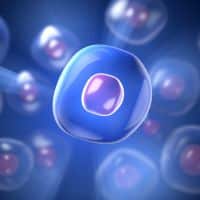Numerous studies suggest that epigenetic mechanisms may control longevity, with aged cells shown to be characterized by incorrect gene expression. Payel Sen, from the University of Pennsylvania (Pennsylvania, USA), and colleagues studied the epigenetic regulation of aging in budding yeast, a single-cell organism. The investigators explain that in yeast, aging is measured by the number of times a mother cell divides to form daughters before it stops. This number — a mean of 25 divisions — is under tight control and can be either reduced or increased by altering histone modifications. In the current study, the researchers found that when fewer chemical groups of a certain type attach to yeast histones, the abnormal transcription greatly increases in old cells. In contrast, they observed hat in yeast strains with a certain enzyme deletion, this abnormal transcription is reduced and lifespan is extended by about 30%. Writing that: “Our results reveal that lack of sustained histone H3K36 methylation is commensurate with increased cryptic transcription in a subset of genes in old cells and with shorter life span,” the study authors submit that: “We propose that epigenetic misregulation in aging cells leads to loss of transcriptional precision that is detrimental to life span, and, importantly, this acceleration in aging can be reversed by restoring transcriptional fidelity.”
Abnormal Gene Transcription Implicated for Cell Aging
Payel Sen, Weiwei Dang, Greg Donahue, Junbiao Dai, Jean Dorsey, Xiaohua Cao, Wei Liu, Kajia Cao, Rocco Perry, Jun Yeop Lee, Brian M. Wasko, Daniel T. Carr, Chong He, Brett Robison, John Wagner, Brian D. Gregory, Matt Kaeberlein, Brian K. Kennedy, Jef D. Boeke, Shelley L. Berger. “H3K36 methylation promotes longevity by enhancing transcriptional fidelity.” Genes & Development, 2015; 29 (13): 1362-76.
RELATED ARTICLES




